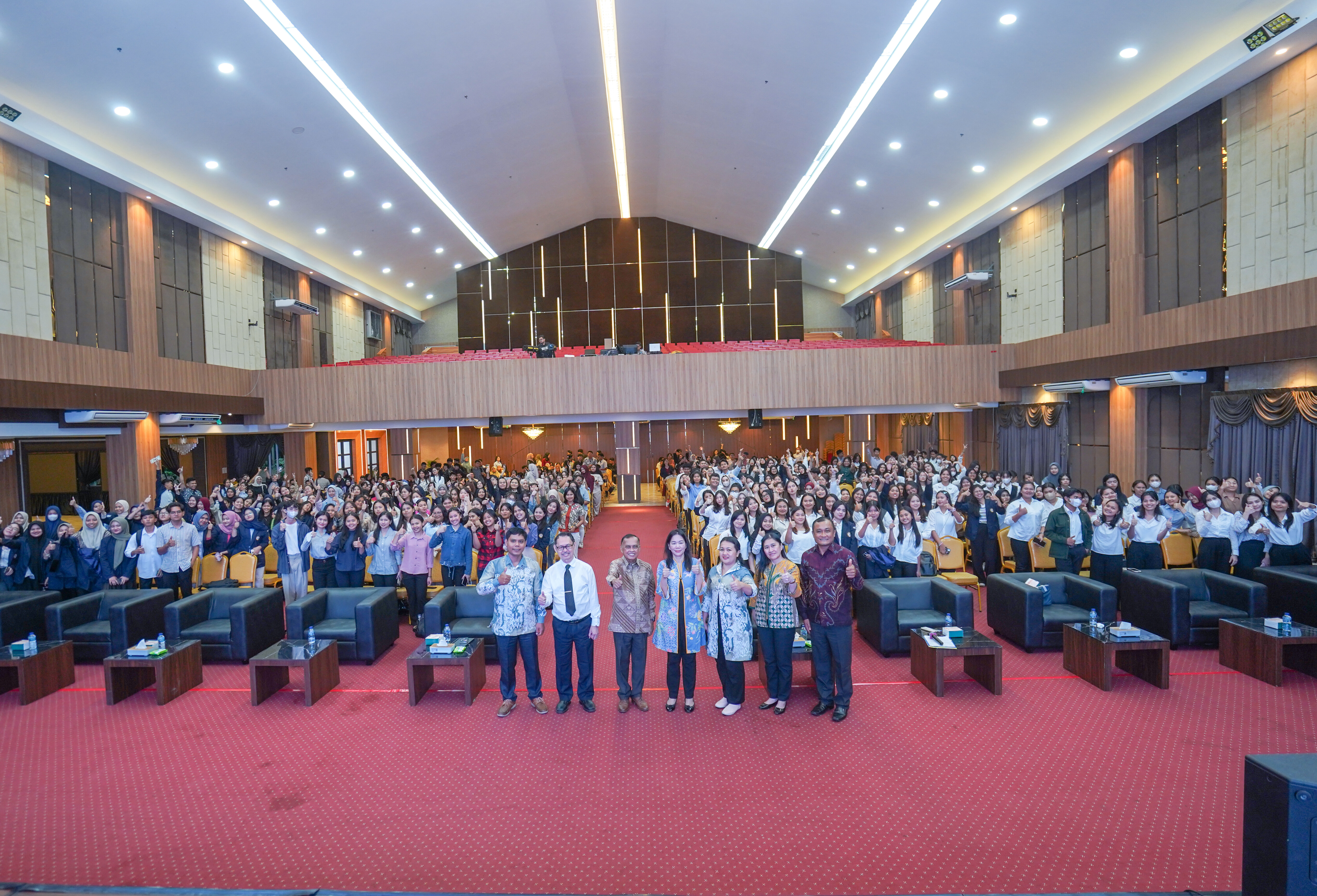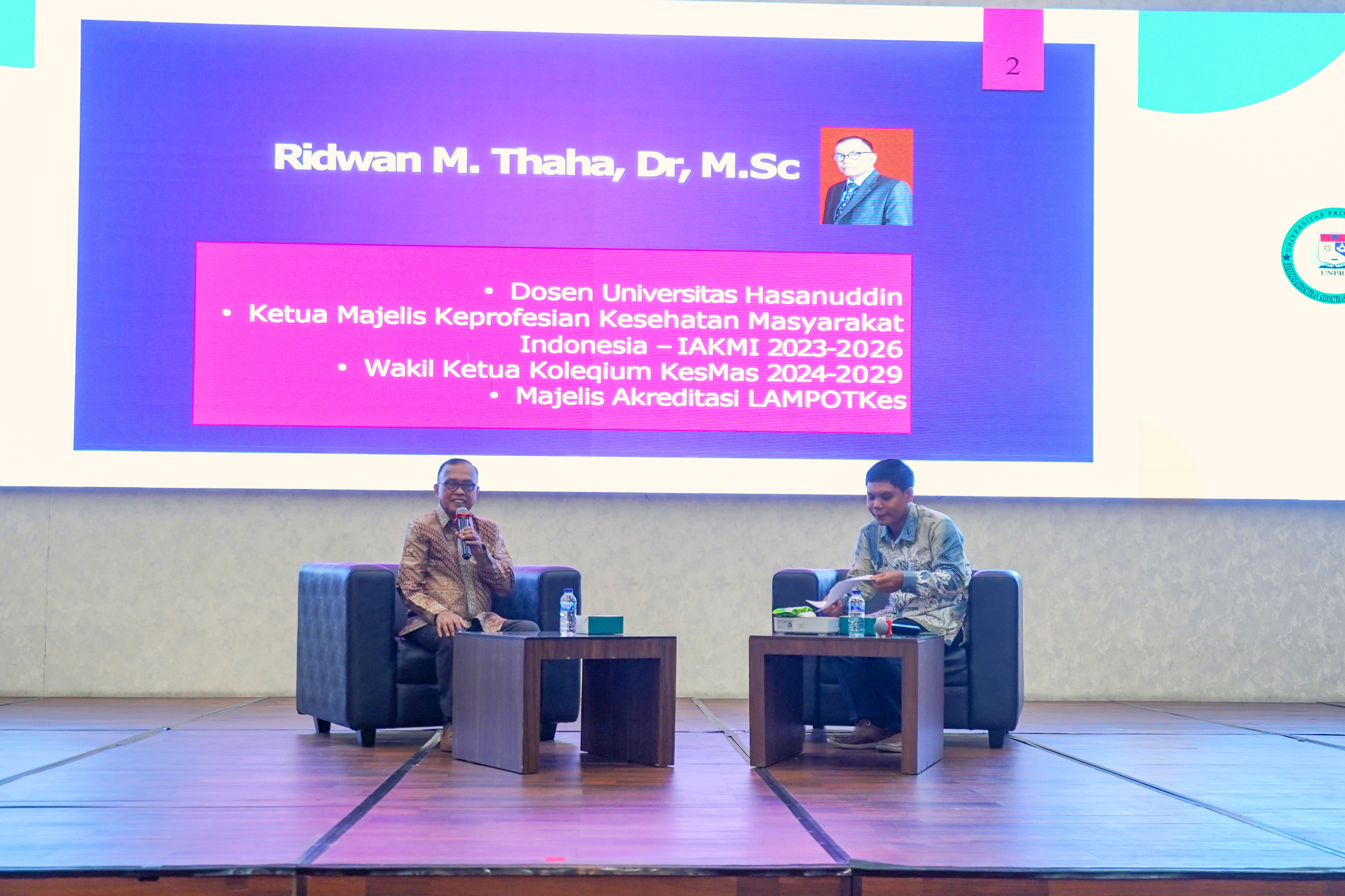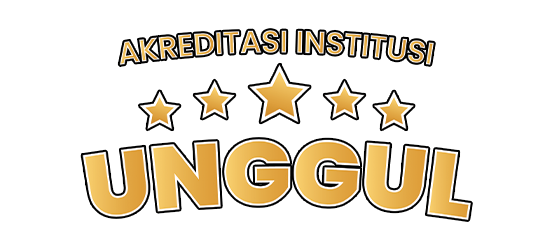UNPRI FKKGIK Students Enthusiasticly Participate in Public Lecture on the Concept of Health and Illness Critical Anthropological Studies
Public lecture

Medan, A total of 850 participants from students and lecturers of FKKGIK UNPRI were very enthusiastic in attending the Public Lecture "Healthy and Sick Concept of Critical Anthropological Studies" held at the Main Hall of the UNPRI Campus, Jln. Sampul No. 3 Medan, Monday (1/13/2025).
Featuring resource person Dr. Ridwan M. Thaha, M.Sc, Lecturer at Hasanuddin University, who is also the Chairperson of the Indonesian Public Health Professional Council - IAKMI 2023-2026, Deputy Chairperson of the KesMas Collegium 2024-2029 and the LAMPOTKes Accreditation Council, said that health workers and health services must be competent in providing services, prevention and promotion which must be carried out more intensively for health development in Indonesia.
According to Ridwan M. Thaha, there are many health problems in Indonesia. These health problems include the Public Health Service System, Mental Health and Substance Abuse, Infectious Diseases, Malnutrition and Food Security, Sexual and Reproductive Health, Cancer and Diabetes, Pollution & Climate Change, there is still an imbalance in service policies that favor curative/rehabilitative versus promotive/preventive. This kind of health service practice occurs in almost all developing countries including Indonesia.
Ridwan M. Thaha gave an example, in America for example, which spends 10 thousand dollars per capita per year, the life expectancy is only 78 years, because the health program/cost is more prioritized on curative, while in Japan which spends 4,400 yen per capita per year, the life expectancy is 84 years, because Japan implements better and more consistent promotive and preventive.
"In Indonesia, the capitation cost for promotive/preventive in 2023 reaches IDR 3,600/year compared to the curative cost/year for Pratama Hospital class services reaching IDR 16,000. The Life Expectancy (AHH) of Indonesians is between 72-74, which is why the cost of implementing promotive/preventive is only 19% of the total capitation/person/year. This proves that health financing is still focused on curative/rehabilitative so that the results of our health development with AHH 72-74 years," he said.
According to him, the results of anthropological studies found evidence that the types of diseases most commonly suffered by the community, were proven to be responded to differently in their distribution. Differences between populations are largely determined by various factors, namely social environmental characteristics, economic conditions, physical and biological environments, demographic characteristics, and lifestyles.

“The practical facts of Biomedical Science have accustomed us to thinking about health problems basically only involving doctors and drugs and surgery and are the most appropriate responses. The results of anthropological studies, the real cause of morbidity (illness) and death (mortality) found that biomedicine is not only a biological problem, but culturally concerns human behavior patterns as fundamental factors underlying the main causes of illness and death. What happened to TB and Malaria in Indonesia is concrete evidence, the prevalence is difficult to decrease and even continues to increase, because it is proven that the healing process involves beliefs, habits, treatment models and healing procedures based on "cultural beliefs". The limitations of the biomedical perspective that disease is basically only physiological and mental and psychosocial problems are irrelevant led Engel (1980) to introduce the biopsychosocial model. The results of the Mental Health Case Study by Mead (2009), that to understand the nature of mental health and overcome it requires a broader perspective, which is related to the psychological, cultural, and social dimensions that affect well-being. Anthropological assessments found that handling mental illness was ineffective because it ignored the psychological and social aspects of the cultural context in which the disease was produced and experienced, "he explained.
How Does the Public Health Profession Deal with Conditions Like This? According to Ridwan M. Thaha, the skills required by public health workers include professional skills in building a Healthy Living Promotion and Prevention Cognitive Map, Ability to Develop Information Media for Social Machine Mobilization, Ability to Develop Advocacy and Negotiation Strategies (building and changing regulations and mobilizing bureaucratic machines), Ability to Work Fully leading and collaborating in multi-sectors for community participation management.
The professional work methods required include counseling skills, small-scale sociology skills, skills in building caring communities, leadership and empowerment skills, ability for Law enforcement, advocacy, negotiation bargaining"To achieve "Healthy", we also need collaboration with sectoral cooperation to knit TOGETHER healthy efforts into facts", he concluded.
Dean of FKKGIK UNPRI Prof. Dr. dr. H. Gusbakti Rusip., M.Sc., Sp.KKLP(K)., PKK., AIFM., AIFO-K, expressed his gratitude for the willingness of Ridwan M. Thaha, Dr, M.Sc to deliver material that is very useful for students. The Dean of FKKGIK hopes that students will utilize the knowledge and experience of the resource person to improve the health of the Indonesian people.
A number of FKKGIK UNPRI students said that the public lecture was able to increase the enthusiasm of health students to build health in their regions with an approach according to the characteristics of their regions.
News About "FKKGIK:"
2025-01-15 11:09:04 by Elhaiza Gq Situmeang
Kuliah Umum
2025-01-15 11:09:04 by Elhaiza Gq Situmeang
Kuliah Umum
2025-01-15 11:09:04 by Elhaiza Gq Situmeang
Kuliah Umum
Other News
2025-01-15 11:09:04 by Elhaiza Gq Situmeang
Kuliah Umum
2025-01-15 11:09:04 by Elhaiza Gq Situmeang
Kuliah Umum
2025-01-15 11:09:04 by Elhaiza Gq Situmeang
Kuliah Umum
2025-01-15 11:09:04 by Elhaiza Gq Situmeang
Kuliah Umum
2025-01-15 11:09:04 by Elhaiza Gq Situmeang
Kuliah Umum












